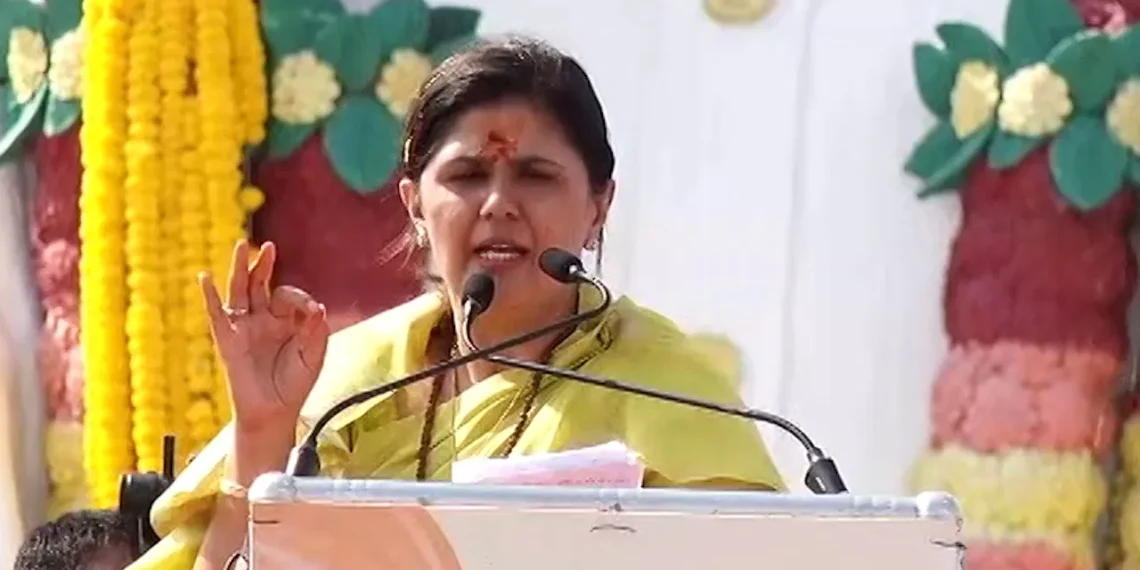The BJP’s internal rift deepened as Maharashtra leaders, including Deputy Chief Minister Ajit Pawar and BJP National Secretary Pankaja Munde, rejected Yogi Adityanath’s controversial “Batenge to Katenge” slogan. While Adityanath’s slogan was aimed at promoting unity, Maharashtra leaders argue it won’t resonate in the state, stressing a focus on development rather than polarizing politics.
By PC Bureau
Uttar Pradesh Chief Minister Yogi Adityanath may be a formidable force within the BJP, but his latest slogan, “Batenge to Katenge” (Divided we fall, United we stand), has sparked significant dissent within the NDA, particularly in the politically crucial state of Maharashtra. What began as a rallying cry in support of Hindu unity has now become a source of division within the BJP’s own ranks, with key figures voicing opposition.
After Deputy Chief Minister Ajit Pawar dismissed the slogan, asserting that it would not resonate with the people of Maharashtra, BJP leader Pankaja Munde has now added her voice to the growing chorus of disapproval. A former minister in the Maharashtra government and current BJP National Secretary, Munde has made it clear that her priorities lie elsewhere. “My politics is different,” she stated. “I won’t support it just because we belong to the same party. A leader’s responsibility is to make everyone feel included, so we should focus on development and avoid bringing such topics to Maharashtra.”
The slogan, first coined by Adityanath during a rally in Agra in August, was aimed at promoting national unity in the face of unrest in Bangladesh. “Batenge to Katenge… Ek rahenge to nek rahenge” (Divided we fall, United we stand), he declared, invoking a sense of Hindu solidarity. Since then, it has been embraced by the BJP as part of its campaign in Maharashtra, with Prime Minister Narendra Modi even echoing a similar sentiment, “Ek hain toh safe hain” (Together, we are safe). The opposition, however, has accused the BJP of pushing a divisive agenda under the guise of unity.
Munde, however, sought to clarify her stance, explaining that Adityanath’s slogan was coined in a very different political context. “Modiji has always ensured justice for everyone, regardless of caste or religion, by providing rations, housing, and cylinders to people,” she explained, distancing Maharashtra’s approach from the rhetoric championed by Adityanath.
Ajit Pawar, for his part, has minced no words in rejecting the slogan’s appeal in Maharashtra. “I have said this several times: It will not work in Maharashtra. It may work in Uttar Pradesh or Jharkhand, but it won’t resonate here,” Pawar remarked at a recent rally. He further asserted, “We stand with you. If anyone says anything, we do not support it. Recently, someone said ‘Batenge toh Katenge,’ but we will not tolerate such talk at all. This kind of rhetoric may work in the North, but it won’t work here.”
As tensions rise within the BJP-led alliance, it remains to be seen whether Yogi Adityanath’s polarizing slogan will have lasting repercussions on the party’s fortunes in Maharashtra, or if the dissenters within the alliance will ultimately reshape the political discourse ahead of the state elections.













